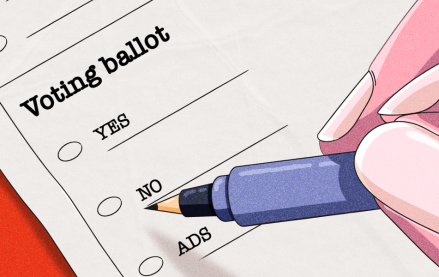
Publishers are giving mixed reviews to Google AMP, three months after the fast-loading article pages initiative launched. Accelerated Mobile Pages is still in its infancy, and it’s hard for them to know what any new platform feature will do for them. But some publishers say that while AMP has delivered on its promise to speed up the web, it’s not driving much traffic.
AMP — considered Google’s answer to Facebook Instant Articles — is basically open-source code that strips down web pages so they load faster on mobile devices. It’s free to any publisher to implement. The extra carrot is that publishers that don’t play along risk being disadvantaged in Google’s search results, as Google has made it clear that its algorithm gives preference to faster loading articles.
Two publishers, Slate and The Atlantic, said they’ve been formatting nearly all their content for AMP, but that AMP pages are accounting for 4 percent of their site visits or less. “I would love to see more widespread adoption,” said Slate vice chairman Dan Check.
That may be because AMP has been rolling out gradually. Google first surfaced AMP versions of stories in top search results before being extended to Google News, and it’s still being applied to new content categories. On May 31, Google published a roadmap that said that by the end of June, AMP would be extended to more content formats, like recipes and local listings. (Google said it’s on track to meet its roadmap goals.) Twitter was a big initial supporter of AMP, but hasn’t implemented AMP pages beyond featuring AMP versions of stories in its Moments section starting in March.
There’s also a feeling among publishers of being in the dark about how much weight Google is giving to AMP stories. “The great big question mark with Google is, what’s the algorithm doing?” one news publishing exec said, speaking on condition of anonymity because the exec didn’t have clearance to speak publicly. “The expectation is that by adopting an AMP template, you potentially will be given a bigger boost in the search results because your page is more mobile-friendly.”
Not all publishers are dissatisfied. Another early AMP adopter, Mic, wouldn’t release numbers but said its search traffic with AMP is better than expected. “We notice real traction with our policy stories and with breaking news. Also with celebrity angles into important Mic issues,” a spokesperson said.
There’s a chicken-and-egg aspect to AMP. Many publishers are getting upwards of half their traffic on mobile devices, and having loading faster articles is crucial to keeping readers and the advertisers that want to reach them. But it’s hard for publishers to make their AMP pages part of the inventory they sell to advertisers when the volume is so low and AMP isn’t supporting all ad types. Meanwhile, Facebook’s fast-loading format, Instant Articles, has potential to get publishers more exposure for their content.
“There are some challenges,” said Melissa Simson, director of ad product innovation at Kargo, a mobile ad company that’s working closely with Google on the AMP initiative. “AMP doesn’t support all ad formats so it’s been hard for publishers to shift from their live dollars to the AMP framework.” Once that happens, she said, ”“There will be more incentive for publishers to build pages in AMP. The more ad formats you offer, the more revenue opportunities.”
The bright side is, incorporating AMP into their workflow has been less demanding than other platform initiatives that demand they format content a certain way if they want to get distribution there. Publishers by this point are used to kinks in platform schemes, having been down this road before with Apple News and Facebook Instant Articles this past year, which have had their share of kinks. Still, the platform demands add up. “At some point, you want to see return on your investment, even if it’s just development time,” the news exec said.
More in Media

Publishers revamp their newsletter offerings to engage audiences amid threat of AI and declining referral traffic
Publishers like Axios, Eater, the Guardian, theSkimm and Snopes are either growing or revamping their newsletter offerings to engage audiences as a wave of generative AI advancements increases the need for original content and referral traffic declines push publishers to find alternative ways to reach readers.

The Guardian US is starting its pursuit of political ad dollars
The Guardian US is entering the race for political ad dollars.

How much is Possible’s future in Michael Kassan’s hands?
Some people in the know at Possible said they see the conference taking a bite out of Cannes’ attendance, most acutely by U.S.-based marketers who could save money by staying on this side of the Atlantic.





